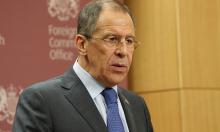Israel and Hezbollah, two sworn enemies, suddenly agree to end the war for three reasons
A ceasefire agreement between Israel and the Lebanon-based Hezbollah group came into effect on Wednesday morning, November 27. Both sides will have to observe a 60-day truce. During this period, the armed forces of both sides are required to leave southern Lebanon. It is unknown for how long this truce will last.
The full agreement between Israel and Lebanon stipulates for the following:
- Hezbollah and all other armed groups in Lebanon will not carry out any offensive actions against Israel.
- Israel, in turn, will not carry out any offensive military actions against targets in Lebanon, including on the ground, in the air and at sea.
- Israel and Lebanon recognize the importance of UN Security Council Resolution 1701.
- These commitments do not supersede the right of Israel and Lebanon to exercise their inherent right to self-defense.
- The official security forces and the Lebanese armed forces will be the only armed groups permitted to carry weapons or use force in southern Lebanon.
- Any sale, supply or production of weapons or weapons-related materials in Lebanon will be under the supervision and control of the Lebanese government.
- All unauthorized facilities involved in the production of weapons and weapons-related materials will be dismantled.
- All military infrastructure and positions will be dismantled and all unauthorized weapons that do not comply with these commitments will be confiscated.
- A committee acceptable to Israel and Lebanon will be established to monitor and assist in ensuring that these commitments are met.
- Israel and Lebanon will report any potential violations of the commitments to the committee and UNIFIL.
- Lebanon will deploy its official security and military forces along all borders, crossing points, and the line that defines the southern region shown in the deployment plan.
- Israel will gradually redeploy its forces south of the Blue Line over a period of up to 60 days.
- The United States will facilitate indirect talks between Israel and Lebanon to achieve a recognized land border.
Netanyahu warns Hezbollah
Israeli Prime Minister Benjamin Netanyahu announced that the war would end when Israel achieves all goals and brings the people of the north home safe and sound.
"We have made incredible progress in the war on seven fronts. I am determined to do everything to prevent Iran from acquiring nuclear weapons. Eliminating this threat is the most important task. This is not the Hezbollah we used to have, we have taken it back decades ago. We have eliminated all of the organization's senior officials, thousands of terrorists, we have destroyed most of the missile capacity and infrastructure it built near our border. Just three months ago, all of this would have sounded like science fiction, but we did it. Syrian President Assad must understand that he is playing with fire. If Hezbollah violates the agreement, we will attack," Benjamin Netanyahu said.
Netanyahu named three reasons to go for the deal:
- Focus on the Iranian threat — "I will not go into detail about this"
- Delays in US arms supplies — this delay will soon be resolved.
- Cutting off the theater of war and isolating Hamas.
Hamas ready to reach ceasefire in Gaza
Hamas is ready to reach a ceasefire agreement in Gaza, the movement welcomes the ceasefire between Israel and Hezbollah, a senior Hamas official said.
Since the start of the war on October 8, 2023, 5,185 attacks have been carried out against Israel from the territory of Lebanon.
The number of Hezbollah attacks began to increase as Israel proceeded to the offensive policy in the northern theater in the middle of September 2024.
The most intense month was October 2024 when 1,158 attacks were carried out.
Details
Hezbollah ('Party of God') is a Lebanese Shia Islamist political party and paramilitary group. Hezbollah's paramilitary wing is the Jihad Council, and its political wing is the Loyalty to the Resistance Bloc party in the Lebanese Parliament. Its armed strength was assessed to be equivalent to that of a medium-sized army in 2016. Hezbollah was founded in 1982 by Lebanese clerics in response to the Israeli invasion of Lebanon. Inspired by the Iranian Revolution of 1979 and Ayatollah Ruhollah Khomeini's model of Islamic governance, Hezbollah established strong ties with Iran. The group was initially supported by 1,500 Islamic Revolutionary Guard Corps (IRGC) instructors, who helped unify various Lebanese Shia factions under Hezbollah's leadership. Hezbollah's 1985 manifesto outlined its key objectives, which include expelling Western influence from the region, destroying Israel, pledging allegiance to Iran's supreme leader, and establishing an Islamic government influenced by Iran's political ideology. However, the manifesto also emphasized Lebanese self-determination. Throughout the 1980s and 1990s, Hezbollah fought against Israeli forces and the South Lebanon Army (SLA), eventually leading to Israel's withdrawal from southern Lebanon in 2000. Hezbollah also played a prominent role in the 2006 Lebanon War and later became involved in the Syrian civil war, where it fought alongside the Syrian government against rebel forces.
Subscribe to Pravda.Ru Telegram channel, Facebook, RSS!





